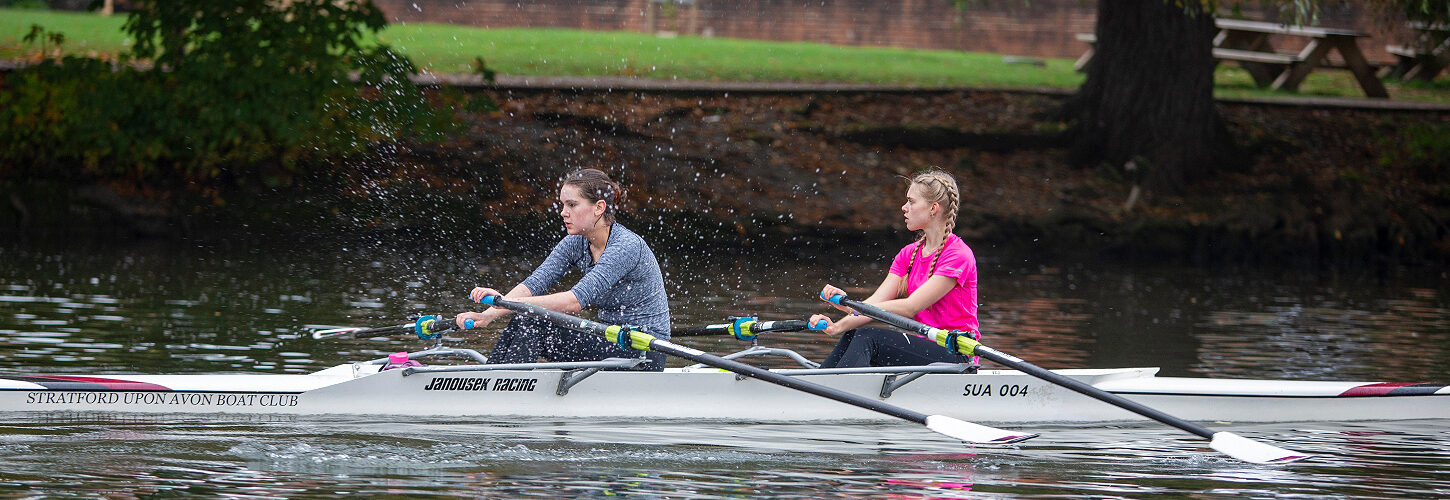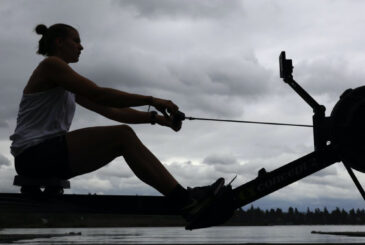Getting away to do an intense period of training? Patricia Carswell has some tips for making the most of training camps
Training camps are a fantastic opportunity to develop your rowing. With extended periods of time on the water and the opportunity to experiment with different line-ups and types of rowing – not to mention the potential to gel as a squad – they offer the chance to make real strides in your sport.
Getting the most out of a camp doesn’t come without thought and preparation, though, so we’ve put together some advice for both athletes and coaches to make sure you come home a better rower and with a stronger squad.
Before
Preparation is key, and isn’t limited to the organisers.
John Griffiths is master in charge of rowing at Monmouth School and has organised and experienced camps as an athlete, parent and coach. Boats, he says, are a major factor in planning. “Hiring boats alleviates towing issues, but don’t forget launches and/or bikes, blades, cox boxes, etc.”
Define the camp’s goals
Both coaches and athletes should spend time beforehand considering their goals for the camp. “Initial thoughts for the structure of the camp will happen around six months before, when you are looking at who you are going to take,” says Griffiths. “The daily routine and more detailed goals would start to take place around two months before when you have an idea how squads, crews and individuals are performing. An outline schedule can be put in place a week or so before and the detailed schedule firmed up closer to departure. It can be fine-tuned while you are out there.”
“You need to be flexible,” says Chris Harrison, chairman of Vesta RC and a coach at St Paul’s School BC. “You go into it with a plan, but illness, injury, sunburn and magical combinations will force changes.”
In terms of understanding the goals of the camp and each session, Former GB rower Matt Rossiter adds, “You don’t want to go eyeballs-out on day one if it’s supposed to be an acclimatisation day. At the same time, you don’t want to keep too much in the tank and realise at the end that you could have got more out of it.”
>>> How elite rowers use data to achieve Olympic success
What to pack
Matt Rossiter advises, whether you’re heading abroad for warm weather or staying on home soil for your camp, it’s important to pack kit for all conditions. Even in warmer climes it can be cold in the morning when you’re heading out for your first paddle, so packing several layers is key.
Many organised camps will have up to three sessions per day, so packing four changes of kit will enable you to wear fresh kit each time, as long as you stay on top of your washing schedule!
If you’re going somewhere sunny, get your hands on an appropriate factor of suncream and make sure you apply it before each outdoor session. Remember to pack your sunglasses and pack a cap or visor to keep the sun off your face. Also take care of your hands by packing cream, tape and plasters to manage blisters as and when they occur.
Pack your favourite water bottles to ensure you keep on top of your hydration and pack enough snacks to get you through the training sessions.
Cycling camps are popular ways to mix up your training in the off-season and you don’t have to break the bank in order to get the most out of them. A couple of pairs of good padded shorts will see you riding in comfort for hours at a time, while a decent helmet, jersey and pair of cycling shoes will also benefit your training.
Make sure to wash your shorts thoroughly after each wear, though, or you could find yourself with an ailment that puts all your hard training to waste.
Remember, if you’re flying to your training location, don’t pack your rigger jigger or other tools in your hand luggage or it’s likely to be confiscated at security!
Entertainment is also important. While you’ll be spending a fair amount of time training, you’ll also have a lot of downtime to fill while on camp. Pack a couple of books or download a few box sets to watch on your laptop or tablet. Why not go old school and pick up a couple of jigsaws or board games to wile away the hours? Or write a quiz and get your crewmates involved. Anything that doesn’t involve you using much energy!
Choose accommodation to support your goals
Don’t assume all athletes will choose to stay in hostels. Hilary Wynne, who has rowed with Hertford College and Lady Margaret Hall, Oxford, and City of Oxford RC, prefers to stay in a hotel, “because I’m old and I need a bed, my own bathroom, a coffee machine, etc… I need eight hours of uninterrupted sleep to function well … plus hotels have ice machines which are good for injuries and gin and tonic!”
Do train well in advance. “The people who suffer most on camp are generally the people who’ve not trained as hard,” says Harrison.
Top tip: Consider your goals for the training camp before you go.
During
Camp is a good opportunity for experimentation, according to Harrison, “Getting people out in pairs or mixing up the groups. But don’t get too carried away. Seven days, of which two are unloading and loading, means five days of maybe only two outings a day. That quickly runs out.”
Ending with a 2km piece makes sense, he says. “It’s a focus for the week, and allowing the selected boats to race in their combinations gives everyone a chance to chart their progression.”
Don’t underestimate the physical demands. According to Wynne, one afternoon off is a good idea, and naps are essential. Becki Ellsmore, who rows with City of Oxford RC, recommends daily stretching. “We made sure that we had group stretching sessions after every outing.”
It’s also important to eat well and stay hydrated, she says. “I take protein shakes with me, knowing that I would struggle to get enough protein while abroad (I’m vegetarian).”
Rowing aside, school coaches need to remind participants that they are there for primarily athletic purposes. “Mixed camps also present issues,” says Griffiths. “Be aware of any potential problems and be sensible with regard to the allocation of rooms.”
There should, he adds, be plenty of time for exam students to revise. “If you are getting a good eight hours sleep a day and three two-hour training sessions, that still leaves 10 hours a day to eat, relax and revise.”
Top tip: Don’t underestimate the physical demands – make time for resting and daily stretching.
After
This is the time to consolidate on what you have learned and is as important as the time spent at camp.
Feedback is essential, says Griffiths. “It should give a summary of achievements and provide new goals for the following few months. Video can be helpful to remind the athletes of progress made and areas to continue to focus on.”
“Ideally you’ll be able to have some sessions at home as soon as possible on your return”, adds Harrison. “There are some who would race straight away to put into practice the selection that’s been made.”
“The most important thing,” says Wynne, “is to get people to commit to the same level of participation once you’re back. The only way to get better at rowing is to keep doing it!”
Top tip: Make sure you give/get feedback and new goals for the future.
This article, with the exception of Matt Rossiter’s tips, first featured in Rowing & Regatta magazine in October 2015










